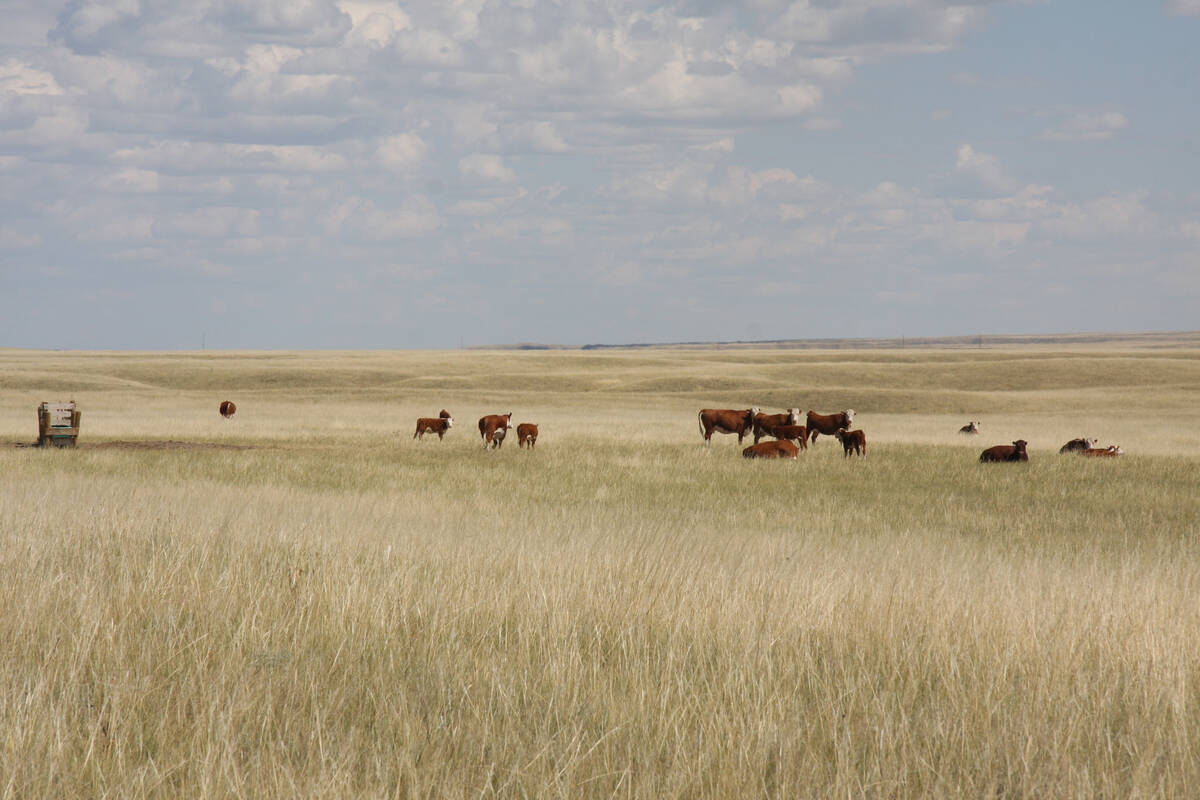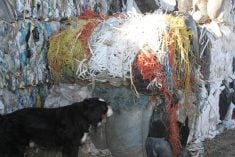The Municipal District of Taber in southern Alberta remains at a political crossroads, weighing the interests of generating revenue for public services with conserving native grasslands.
A handful of provincial conservation groups have voiced their concerns over a proposal to convert more than 3,000 acres of municipally held native grasslands into irrigated cultivated land to grow crops.
Related story: Petition launched over grazing lease controversy
Read Also

U.S. government investigates high input costs
The USDA and DOJ are investigating high input costs, but nothing is happening in Canada.
In a joint news release, the Alberta chapter of the Wildlife Society, the Alberta Wilderness Association, the southern Alberta chapter of the Canadian Parks and Wilderness Society, Nature Alberta and the Southern Alberta Group for the Environment asks that six sections of land located near Scope Reservoir east of Vauxhall, Alta., be kept in its current form.
The land is currently leased to the Vauxhall Stock Grazing Association, but that group has been informed its lease will not be renewed in 2026.
According to a Calgary Herald article, Cliff Wallis, a board member with the Alberta Wilderness Association, recently visited the site and saw species that included the chestnut-collared longspur, which Birds Canada says has declined by 95 per cent, as well as barn swallows and pronghorn.
Wallis was on a hand for the first of a series of public meetings by the Oldman Lease Holders Association to address leaseholders’ concerns over a borrowing bylaw proposed by the municipal district.
The bylaw would provide as much as $6 million to change the land from grazing to irrigated cropland land in partnership with the Bow River Irrigation District.
A string of public meetings in Vauxhall, Enchant, Hays, Grassy Lake and Taber hope to collect upward of 800 signatures from local residents on a petition that would block third and final reading of the borrowing bylaw, opting for a public vote if the project should commence.
“Native grasslands are some of the most threatened ecosystems on the planet. Sure, there’s a couple of well sites on the roads, but it’s native grasslands, it’s species at risk and it’s in good shape,” said Wallis at the OLHA meeting in Vauxhall on Sept. 9.
“We’ve been looking after it, we’re quite happy. We have a good relationship, both with farmers and with ranchers. I sat on the minister’s committee for the Water Act in 1995 and we made sure that people’s water rights were protected. We understand both sides of this, but when you have a disappearing resource with that, it’s our duty to look after it, trying to protect them. We also see it as an economic issue.…
“We funded the things in the campaigns and counties that we can rely on longevity here, so we need that mix, so don’t forget about that. It is an economic issue. It is a conservation issue. I was appointed to the Order of Canada for my work on nature conservation in 2023, so I try to find the solutions here. There are groups that have money, (maybe) turn it back to the province and maybe there’s some payments back to the county, or in Canada, in some kind of conservation. Let’s talk about it. There is a stewardship here that we appreciate, and I think it should be rewarded, not punished.”
The proposed project is a 3,100-acre carve-out from the 69,280 acres of municipally owned and 160,800 acres of crown-owned lands that are currently accessible for ranching and grazing operations within the municipality, according to the MD of Taber website.
The changes to expiring grazing and cultivated leases in the area have been a contentious issue for months, with delegations from both sides expressing their viewpoints during council meetings and public information sessions.
The proposed project involves only a small portion of native grasslands in the MD, but the Vauxhall Stock Grazing Association and local ranchers say they are worried about the precedent it could set.
They say that under the agreement with the BRID, a land sale can be facilitated with a year’s notice or grant a lease to a third party for an alternate use with 30-days written notice.
Ranchers are worried it could theoretically swing the balance over to high-value irrigated crop production and away from land stewardship of native grasslands if future councils were so inclined.
“More or less, we are just trying to make people aware of the situation,” Daryl Johnson, vice -resident of the Vauxhall Stock Grazing Association, said in an interview.
“So now the MD is in this situation where they have all this land, and there’s of course, all these different pressures on them.”
He said council has told the association it has received inquiries about all of the native prairie grasslands in the MD that are used for grazing.
“We’re just hoping to make things work for everybody, of course. But at the end of the day, there needs to be a fair deal, and there needs to be the recognition of those leaseholder rights that have been there for as long as these lands have been (tax-recovery) seized, really. The changes to these leases have massive impacts.”















